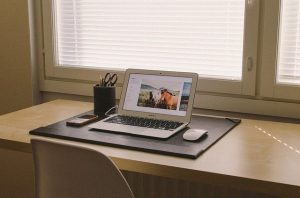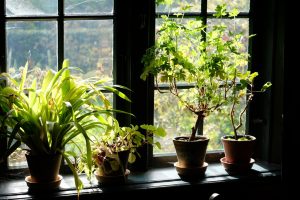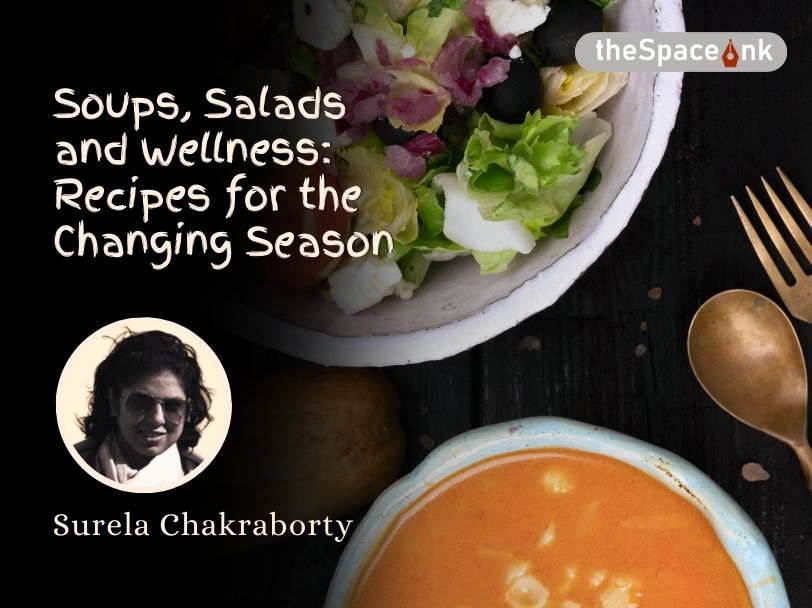Home is that private space where after a long hard day at work or travel we look forward to returning, where we can be ourselves, away from the scrutinizing and judging eyes of society. Even people like me who have always been homebound, working from home before the pandemic made this an alternative option – this space has been exclusive. I agree with Marvin J. Ashton’s words, who said, ‘Home should be an anchor, a port in a storm, a refuge, a happy place in which to dwell, a place where we are loved and where we can love.’
But ever since our homes have become the centre of all attention and activity over the past year or so, the space I called my own, began to feel strangely unfamiliar. At first, I couldn’t put a finger on why my favourite spot by the window where my work desk is positioned because it provides the best view in the house – didn’t feel as welcoming as before. Why the silent corner where I would often curl up with a book and a cup of tea, was no longer inviting? Or why despite bagging interesting assignments, work didn’t feel exciting anymore! That’s when I realized that my home which once used to be the refuge from my stress, was now becoming the reason for my stress.

From Reclusive Retreat to Work Pad
We rely on the intimate space of our homes tastefully done up, a reflection of our character and personality, to help us unwind, rejuvenate and keep us happy. In the early days when the pandemic confined everyone indoors, being 24/7 around family seemed like a dream come true. This whole new scenario when life slowed down and we were no more pressed for time, began to be hailed as nature’s sign to the human race to live in the moment, and get our priorities right. But as the pandemic dragged on for over a year now, and the novelty of the situation has long worn off, with many activities still continuing out of home – this private and happy haven seems to have lost its energy and the positive vibe so essential to our wellbeing.
With family members who in normal circumstances would be conducting their respective duties outdoors, now forced to transform the home into a working pad, the indoor space has come under tremendous strain. From a reclusive retreat where as a family we would spend some quality time together, chatting, watching a movie or a cricket match; now every social interaction happens out of these spaces. There is no longer a specified and defined place assigned to work and for leisure.

The entire house is forever buzzing with activity― while online classes are happening in one corner, a conference call is on in the other and yet another corner is hosting a zoom session. This sudden invasion of our private space has become disconcerting, and the merger of both our world, work and leisure, meant if work was stressful, there was no physically getting away from that toxic environment. Not only did this impact productivity, it also disrupted the home environment that once helped cope with such stressors.
Too Much Mental Clutter
The shift to online mediums to fulfil the basic necessities and for news and information also meant a constant bombardment of distracting notifications, information overload, calls from strangers, fraudsters, and WhatsApp forwards instructing everyone to stay safe and healthy, ironically adding to the mental stress load. It’s a known fact that the brain is overwhelmed by too much disorganized stimuli and can result in mental clutter. The American Psychological Association defines information overload as excessive information, be it in amount or intensity which exceeds the processing capacity of an individual resulting in anxiety and leads to reduced decision making ability.
Making Peace With My Mind
So, the first step to get back my mind space was to sort out and get rid of the tons of clutter tossing about in my head. Social media might be a great platform to connect at a time physical interactions are best avoided, but it can be exhausting and eventually it was from organizing my digital space that I benefited the most. According to a study published in the Science Direct, batching notifications is a smart way to cut distraction, increase focus and productivity and elevate one’s mood. After I did it, I realized the huge difference turning off notifications and filtering the content from media feeds, muting and unfollowing accounts made to my mind space.
Home should be an anchor, a port in a storm, a refuge, a happy place in which to dwell, a place where we are loved and where we can love.
Marvin J. Ashton Tweet
That sorted, I turned my attention to the disturbing thoughts and emotions that were holding me hostage. It isn’t easy to step back and get away from the current depressing situation when the world is on the brink of tipping over, but there are certain things that are beyond our control. I categorised them under, ‘can change’, and ‘cannot change’. Below the first category I listed situations that were under my control, ones I could change, and began doing my bit. Those that fell in the second category, I let go off.
A Little Greenery goes a Long Way
Finally, the time came to convert my physical space into a source of positivity and the one trusted way to do this was by creating a green space. According to Attention Restoration Theory spending time in the natural environment helps reduce mental fatigue and improve cognitive function, restore the cognitive resource and enhance directed attention. This corroborates Biologist Edward O. Wilson’s theory on biophilia put forth in 1984 in which he substantiates that the environment through which humans evolved plays a major role in how the human brain is primed to respond to positivity.

That explains the reason green spaces even indoors, alleviate anxiety, anger, depression and fatigue. Being aesthetically and naturally pleasing to the senses, indoor plants make the home a happy and healthy space, one that is so crucial in times like these.
Image courtesy: Pixabay
Lesley D. Biswas is a freelance writer and children’s author based in Kolkata. Her interests include nature, bird photography and cricket.







